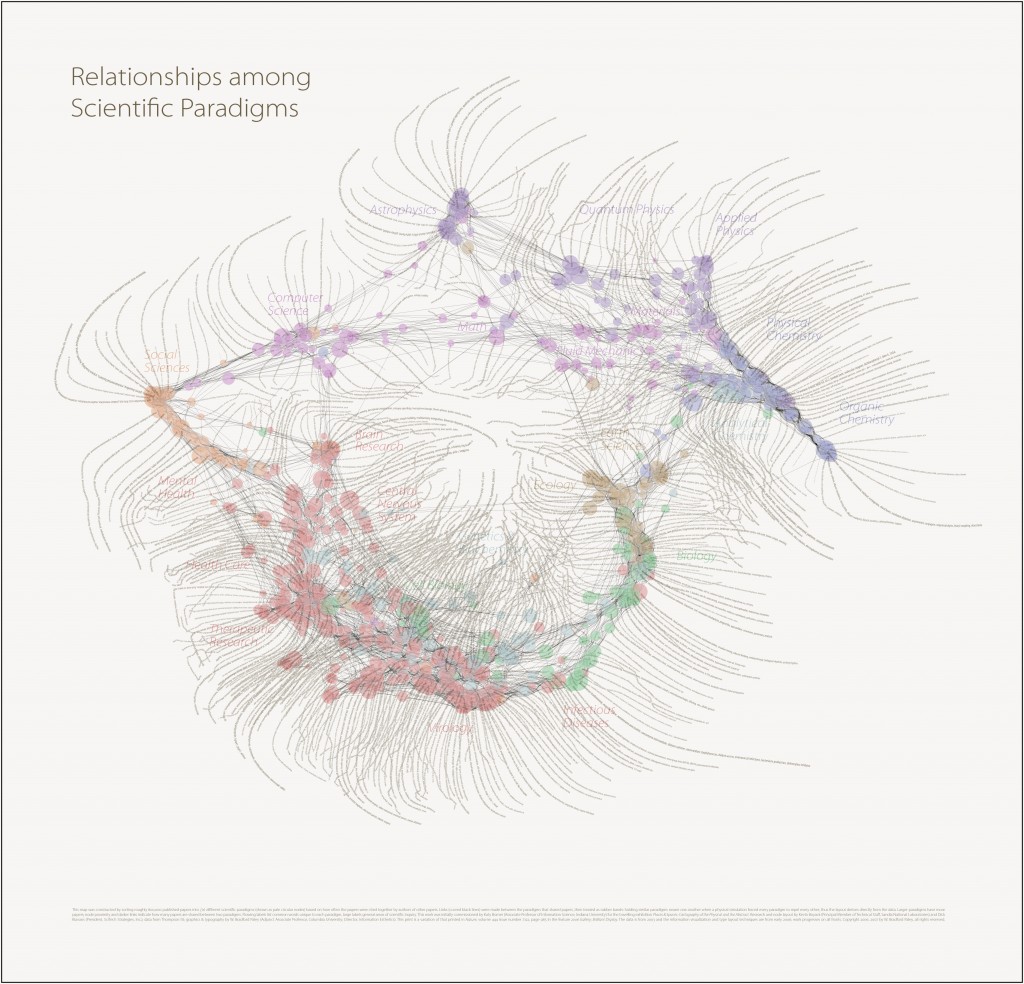or Yet Another New Name.
Scientonomy. n.
1. The scientific study of science and scientists, especially their interactions, creative activities, and specific objects of research.
2. A system of knowledge or beliefs about science, broadly construed.
I hope science to be taken in its broader sense, like the German’s wissenschaft, described by Wikipedia as “any study or science that involves systematic research and teaching.” This extends scientonomy to the study of most subjects taught in academia, and many that exist well outside of it. Also, it’s worth noting that “the scientific study of…” should also be taken as wissenschaft; that is, using more than just natural science methodologies to study science. This includes methods from the humanities.
Science comes from a Latin word meaning “to know,” and it is knowledge and its creation and assorted practices I wish to explore. The suffix -nomy is ancient Greek, meaning law, custom, arrangement, or system of rules. They come from two different languages; deal with it. I would use episteme rather than scientia, however its connotations are too loaded, and it is too separate from its brother techne, to be useful for my purposes.
It is important that I use the root science, as this project does not seek to understand knowledge in a vacuum, or various possibilities of how knowledge and knowledge creation may work, but rather how humanity has actually practiced scientific creation and distribution, and the associations and repercussions those practices have had (and gleaned from) the world at large.
The suffix -onomy is the natural choice for two reasons. First, scientonomy could be an unobtrusive measurement in the same way astronomy is. That is, the act of collecting and analyzing scientonomic data in a way that does not intrude on the science and scientists themselves, from a distance and using their traces, much like the way astronomers view their subjects from a distance without direct experimentation. This in no way means scientonomy would make no mark on science; indeed, much like astronomy helped pave the way for the space program and allowed us to put footprints on the moon, scientonomy has the power to greatly affect the objects of its study.
Like scientometrics, from which springs the dreaded h-index and other terrifying ways of measuring scientific output, scientonomy wields a dangerous weapon: the power to positively or negatively affect the scientific process. Scientonomy should be cautious, but not lame; we should work to improve the rate and process of scientific discovery and dissemination, we just need to be extremely careful about it.
The second reason for –onomy is a bit sillier, and possibly somewhat self-serving. All the other good names were taken, and already mean slightly different things. We already have Science of Science (Burnet, 1774; Fichte, 1808; Ossowska & Ossowski 1935; Goldsmith 1966) which is actually pretty close to what I’m doing, but not a terribly catchy name; Scientometrics (Price, 1963) which focuses a bit too much on communicative traces at the expense of, say, philosophical accounts; Scientosophy (Goldsmith 1966; Konner, 2007) which sounds too much like science as philosophy; Scientography (Goldsmith, 1966; Vladutz, before 1977; Garfield, 1986) which deals mostly with maps; Scientopograhy (Schubert & Braun, 1996) which focuses on geographic/scientific relations; as well as meta-scientific catch-alls like STS, HPS, Sociology of Science, etc. which all have their own associated practices, all of which have a place in scientonomy. There’s also Scientology, which I won’t even bother getting into here, and (hopefully) has no place in scientonomy.
